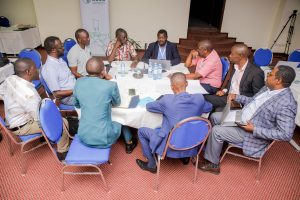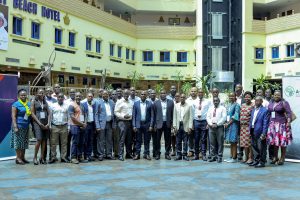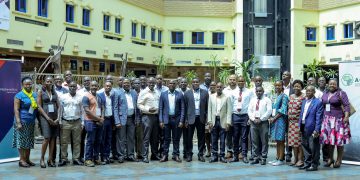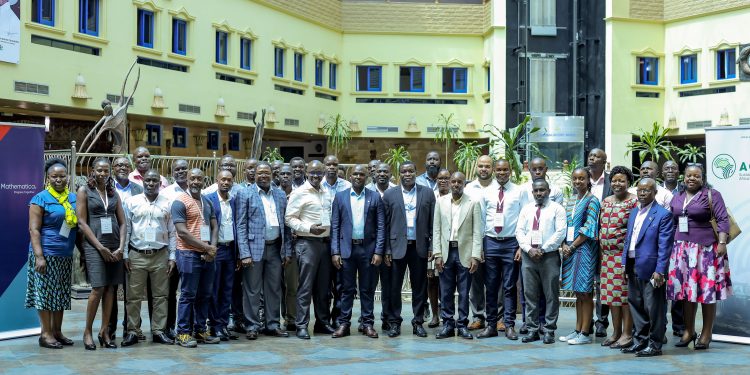Entebbe — The Alliance for a Green Revolution in Africa (AGRA) and the Ministry of Agriculture are holding a two-day national workshop at the Imperial Resort Beach Hotel in Entebbe to validate climate risk findings and launch Uganda’s new climate vulnerability maps.
Titled “Strengthening Climate Adaptation through Evidence-Based Policy & Community Action,” the event, held in partnership with Mathematica and EDI Global, will also facilitate community dialogues with farmers, youth, and government leaders.
The meeting — part of a five-country initiative covering Uganda, Kenya, Tanzania, Ghana, and Zambia — aims to refine data models that will guide climate adaptation investments and interventions across Africa’s key agricultural systems.
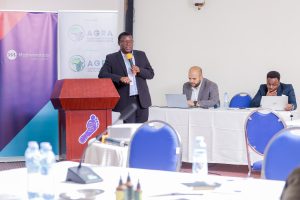
Opening the workshop, Mr David Wozemba, AGRA Country Director for Uganda, emphasised the importance of aligning development partner priorities with national agricultural goals.
“This forum aligns perfectly with AGRA’s mission — to strengthen the resilience of key actors within Africa’s agricultural ecosystem,” Wozemba said. “Understanding the levels of vulnerability across agricultural systems helps us design the right interventions. That’s why vulnerability mapping is critical.”
Wozemba, who also chairs Uganda’s Agricultural Development Partner Group, said the validation process allows scientists, policymakers, and farmers to co-create locally relevant adaptation strategies.
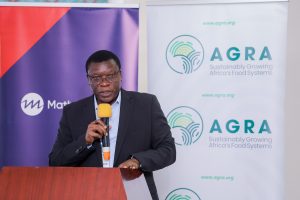
“Implementation truly begins at the local level,” he noted. “If our interventions are not grounded in community realities, then we are only speaking to ourselves.”
He added that AGRA’s ongoing programs in Uganda — including the REGAIN Project, co-implemented with the Ministry of Finance and the Ministry of Agriculture — focus on reducing food loss and strengthening resilience under the Green Climate Fund (GCF).
Mapping Uganda’s Climate Vulnerability
Presenting technical insights, Mr Dan Bunter, a Senior Consultant at EDI Global, a Mathematica subsidiary, said the project uses the Intergovernmental Panel on Climate Change (IPCC) framework to quantify vulnerability through a composite model of exposure, sensitivity, and adaptive capacity.
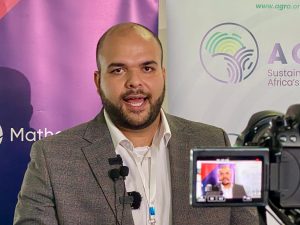
“Our goal is to make climate data actionable,” Bunter explained. “We’ve developed interactive maps and dashboards showing which regions are more or less vulnerable to climate risks for specific crop-growing areas.”
He said Uganda’s preliminary findings indicate moderate exposure to droughts and floods across major value chains — maize, beans, and cassava — but high sensitivity in certain regions, meaning some crop varieties are more susceptible to changing weather patterns.
“Our next steps involve validating these results with stakeholders and identifying how adaptation strategies can strengthen resilience in these high-risk zones,” he said.
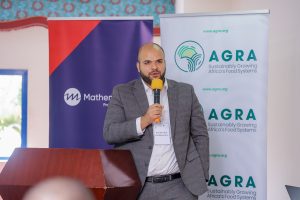
African-Led Solutions
Dr Jeremiah Rogito, AGRA’s Agribusiness Specialist, reflected on the urgency of African-led adaptation efforts, citing shifts in rainfall patterns, prolonged dry seasons, and increasing climate hotspots across the continent.
“When we look back even just ten years, we can clearly see the changes — more heatwaves, more droughts, and erratic rains,” Rogito said. “It’s crucial for economists and policymakers to understand where these climate hotspots are emerging, so we can make informed choices today to better prepare for tomorrow.”
Rogito underscored that while the current study focuses on three major crops, the lessons are applicable across Uganda’s broader farming systems.

“We have analysed this at two levels — the farming systems level and the value chain level,” he noted. “Even for farmers growing other crops, understanding these vulnerabilities helps identify what needs to be done to adapt and strengthen resilience.”
He also echoed AGRA’s founding principles, reminding participants of Kofi Annan’s vision for an “African Green Revolution” that is “African in design, African in leadership, and African in impact.”
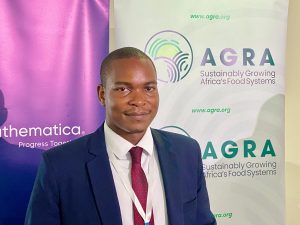
“The future of African agriculture must combine technology, innovation, and resilience,” Rogito said. “Combating climate change goes beyond planting trees — it’s also about addressing food loss, waste, and productivity.”
The Uganda workshop marks the third national validation under the multi-country program, following similar sessions in Ghana and Tanzania. The team will proceed to Zambia and Kenya later this month.
Rogito challenged participants not to let the insights end in reports, but to translate them into tangible action. “Let’s not just listen — let’s act,” he urged. “It would be a missed opportunity if we validate these findings and don’t become their first users.”

Quoting John F. Kennedy, he concluded: “Ask not what your country can do for you — ask what you can do for your country. If not you, then who? And if not now, when?”
The Climate Vulnerability and Risk Analysis for Guiding Climate Adaptation Interventions and Investments project is jointly implemented by AGRA, Mathematica, and EDI Global, with support from technical experts including Anthony Harris, Ritvik Sahajpal, Anthony D’Agostino, Dan Bunter, Alvin Mugwe, Cypridion Mushongi, Felix Kalaba, Johnbosco Birenge, Kwabena Asubonteng, and Nicolas Oguge. The findings are expected to inform policy design, resource allocation, and adaptation planning in agriculture across the five target countries.
